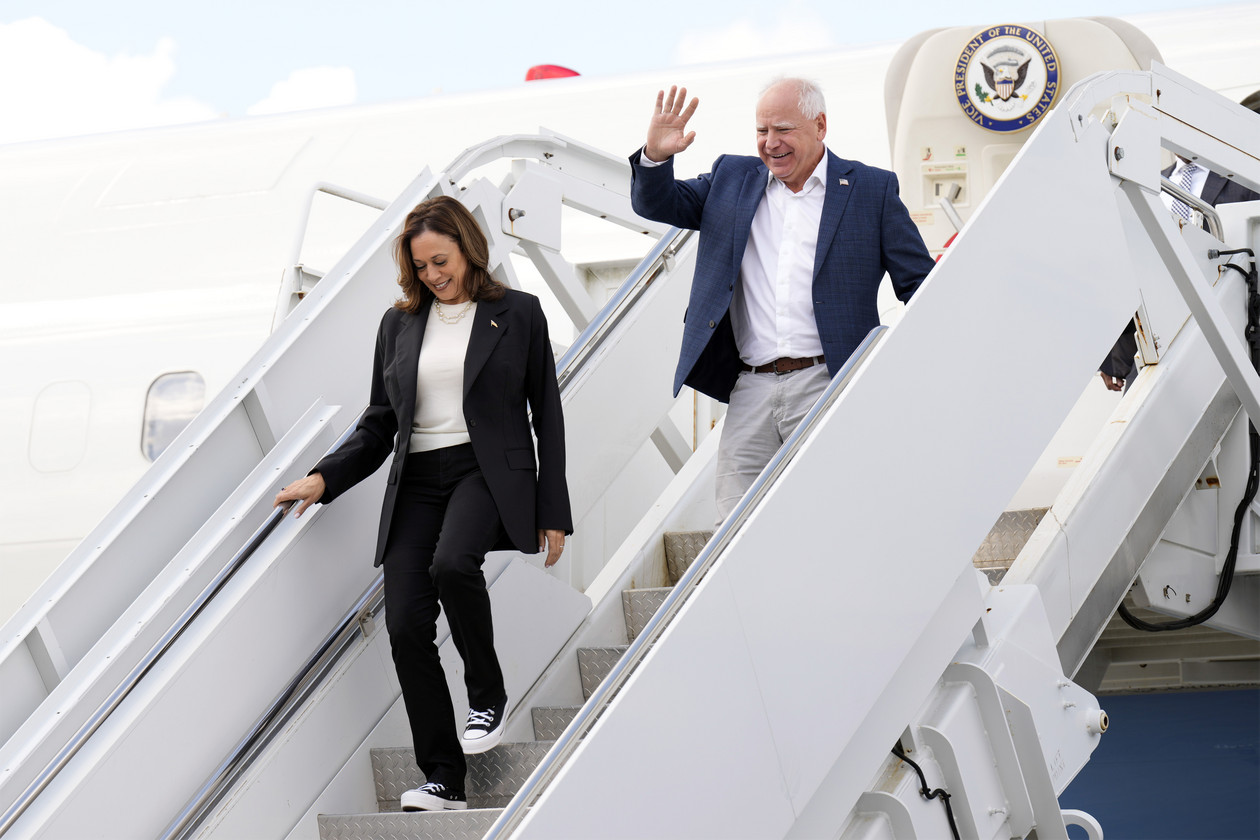By Meredith Lee Hill
Tim Walz has struggled over the years as a fundraiser, limited in part by his lack of high-dollar donor networks from his days representing a rural congressional district.
But, in just the past few weeks, the Minnesota governor has grown into a more sought after commodity and helped Kamala Harris in her efforts to bring in record-breaking sums since being tapped as her running mate. He’s often pulling in $750,000 to $2 million himself per campaign fundraiser, according to two other people familiar with the matter who weren’t authorized to speak publicly.
Now, the Harris campaign is working to rapidly accelerate Walz’s fundraising push as the team aims to pour millions more dollars into resource-intensive ground organizing in battleground states with just weeks to go before the election.
Harris’ team has been eyeing ways to maximize Walz’s reach in the days ahead as they build out GOTV efforts in battleground states, including in rural and less-populated pockets that are expensive to reach.
The Harris campaign’s $100 million cash advantage is also allowing the party to build out strong organizing infrastructure in previously cost-prohibitive areas, especially rural and exurban stretches beyond Democrats’ major urban strongholds. And, Democratic strategists in battleground states expect record-breaking amounts of money to keep flowing into their states for ads and ground organizing.
“It’s going to be more than ever before. It’s going to be a stupid number. But that’s what we’re used to,” said Joe Zepecki, a Democratic strategist in Wisconsin. “I have no reason to believe they’re going to leave any stone unturned here.”
The campaign wants Walz to go “everywhere” to pull in more donations, said one of the people familiar with the matter, likely after the vice presidential candidate debate Oct. 1. The Harris campaign declined to comment.
The governor has already spoken at Harris-Walz campaign fundraisers in California, Denver, Boston and New York. But the Harris team, who has been leaning on Walz’s appeal as a former high school football coach, is looking to expand both the rate and the geographic range of his donor outreach.
The campaign is deploying Walz in a variety of ways, including sending a text Sunday night from Walz where he pressed potential supporters that it’s the “final quarter” and “we need someone on the field to…go above and beyond to help elect Kamala Harris as the next President of the United States.” The campaign sent the text ahead of Friday’s FEC filing deadline.
Earlier this month, Walz told a ballroom of higher-dollar Democratic donors during his keynote remarks at the Human Rights Campaign annual dinner that in the final campaign sprint: “We organize, we donate, we volunteer.”
Walz allies and donors say his previously lackluster showing as a fundraiser largely stemmed from a limited network of high-dollar donors. His background as a high school teacher and football coach from a small town in Nebraska who represented a red, rural district in southern Minnesota didn’t provide many natural connections to deep-pocketed supporters.
“He’s always struggled,” said a second Walz ally, who was granted anonymity to candidly discuss the matter. “He’s never really been good at it, until now.”
The wealthiest area in Walz’s former congressional district is the city of Rochester, home to the prestigious Mayo Clinic. The area was one of the strongest bases of Walz’s financial support during his tenure on Capitol Hill.
Still, one Walz ally noted the inherent limitations of the area: “That’s doctor money, that’s not Wall Street money.”
The former school teacher and coach often held fundraisers in the homes of supporters there, including in the living room of Rachel Bohman, the Democrat running to win back Walz’s old congressional seat from Republicans this fall.
In his first 2006 run for Congress, Walz initially didn’t have enough money in the summer of 2005 to bring another consultant beyond a small handful of hires. So, he waited until the summer of 2006 to make the addition, as he sought to oust a GOP incumbent in the conservative-leaning district.
Becoming the chair of the Democratic Governors Association last December also helped Walz build his national profile, including connections to a wider pool of donors. Walz, after raising just over $1 million for his first gubernatorial bid in 2018, had raised more than triple that total several months ahead of his 2022 reelection.
The governor’s role in Harris’ fundraising push began even before he joined the ticket. Walz held several last-minute fundraisers for Harris in the final days of her veepstakes selection, including at a woman-owned brewery in St. Paul.
Several Minnesota Democratic donors who attended the event were elated that the impromptu gathering brought in more than $150,000.
Minnesota Democrats have also noted Walz’s new connections and fundraising skills will be an asset for any of his next political steps, should Democrats win the White House this fall or, if they lose, Walz pursues a third term as Minnesota governor.
Walz, who ever since his very first campaign fundraiser has been known for his at times frenetic and too-fast speech delivery, seems more comfortable in his fundraising pitches to higher-dollar donors in recent weeks.
He recently ventured into the deep red state of Texas for a fundraiser in the Democratic stronghold of Dallas. Several prominent Democratic lawyers hosted the event at an upscale Hilton with tickets reaching $100,000.
In a brief speech, Walz criticized former President Donald Trump and Republicans over rolling back abortion access. He also urged the Texas Democratic donors to help power the party’s entire ticket, including to help oust GOP Sen. Ted Cruz who is in a tighter race than many expected.
“My God, just do it for all of America: replace Ted,” Walz told the crowd.

